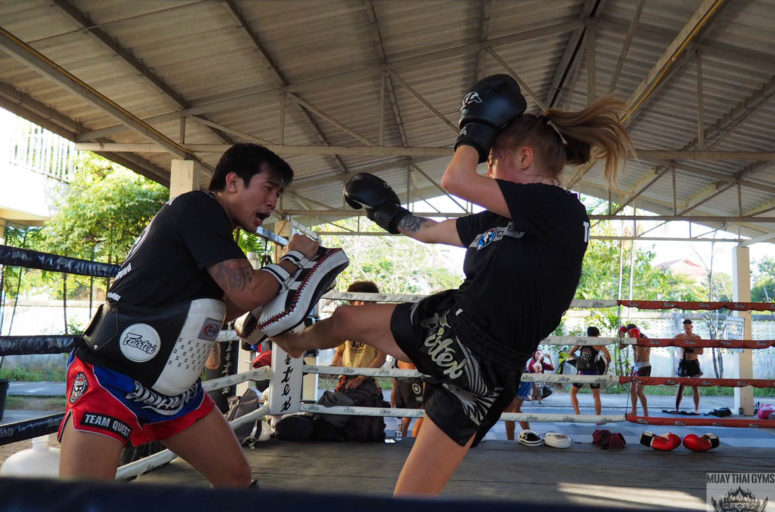Thailand has consistently been rated as one of the top travel destinations in the world. It’s not hard to see why. From its beautiful luxury beachside resorts to budget-friendly backpacker adventures Thailand has something to offer for every income bracket. Traveling is lovely, though sometimes stressful, experience. Being in a foreign land and trouble with the law is the last thing most want during a vacation. So to help you sidestep some of the most common issues with Visa here is a list that can help hopefully you avoid making these same mistakes.
1. VISA UPDATES
This is number one on the list, and it can be useful no matter what country you are traveling. One of the first things before booking any trip It is especially crucial for Thailand since there seems always to be new laws or old ones being changed or enforced. This is particularly true for those who plan on making a trip that’s going to last over four weeks.
The best way to keep up to date with what’s going on visa wise is to check your local Thai Embassy/Consulate website. Similar websites you can use, and we recommend Thaiembassy.org to check the rules for your country. There is also a wide array of blogs that touch on this subject. Some of them have a full break down of what you need and how-to instructions. The problem is a lot of those blog sites don’t update their page/posts when new laws are put in place. The safest and most reliable option is to call the Thai consulate for up to date information.
If you intend to be here no longer than 30 days, you don’t require a Visa to enter the country. Make sure your country is on the listed as one, and your passport MUST be valid for at least six more months.
Countries that can get 30 Days on Arrival :
Australia , Austria , Bahrain , Belgium, , Brunei, Canada, Czech Republic , Denmark, Estonia Finland , France, Germany , Greece, Hong Kong SAR, Republic of Hungary, Iceland, Indonesia, Ireland, Israel, Italy, Japan, Kuwait, Laos, Principality of Liechtenstein, Luxembourg ,Malaysia, Macau SAR, Monaco, Mongolia, The Netherlands, New Zealand, Norway, Oman, , The Philippines, Republic of Poland, Portugal, Qatar, Russian Federation, Singapore, Slovak Republic, Republic of Slovenia, South Africa, Spain, Sweden, Switzerland, Turkey, United Arab Emirates, United Kingdom, United States of America
Countries that only get a 15-day exemption:
Andora, Bhutan, Bulgaria, China + Taiwan, Cyprus, Ethiopia, India, Kazakhstan, Latvia, Lithuania, Maldives, Malta, Mauritius, Romania, San Marino, Saudi Arabia, Ukraine, Uzbekistan
Countries allowed 90-Day Tourism without a visa:
Brazil, Chile, Korea, Peru, and Argentina
-Tip-
Make Your Visa Last Longer!
If you intend on staying in Thailand for an extended period, then there’s a good chance that you will either have to go out of the country to get a new visa or you will want to extend the visa that you currently hold.
The process is straightforward and can be lengthy, depending on the immigration office.
Who can extend their tourist visa?
Anyone who either has:
A 30 Day Visa Exemption stamp, 60 Day Single Entry Tourist Visa and METV (Multiple Entry Tourist Visa)
What you are required to bring:
- A passport that’s valid at least for six months
- Make Photocopies of the main passport page, the current Thai tourist visa page, the TM.6 departure card, and latest entry stamp: Make sure you sign all photocopies
- Application for Extension
- 1 4 cm x 6 cm passport photo
- The application fee of 1,900 baht cash
Keep a copy of your current address, even if its a hotel and your phone number on your persons anytime you fill out any immigration forms. This information is always requested.
To be safe, I suggest giving yourself a few days before your entry expires to apply for an extension. That way, if your expiration date surprisingly lands on a weekend or a Thai holiday, during which the offices are closed. By the way, if this does happen, you will have to pay the fine for however many days you overstayed.
2. THE RIGHT VISA FOR YOUR TRIP
So right off the bat, you have three choices. The first one is the easiest and requires nothing; most countries can get 30 days on arrival. To be more precise, once you enter Thailand, you will get a stamp stating that you can stay for 30 days. Now 30 days is more than enough for many people. However, for of those that plan to take longer time off, it is crucial you get the right visa for yourself. As Thailand has grown to be a popular destination for tourists, digital nomads, and fighters the cost, rules, and requirements to obtaining a visa keep changing dramatically.
Who should use the 30 days?
The 30 days upon on arrival is best for those looking to stay a short time in Thailand and don’t plan to stay any longer than that. Depending on how long-drawn your flight is, you can get a solid three weeks of training.
Single Entry Tourist Visa
The Single Entry Tourist Visa is usually peoples second choice. Costing only USD 80.00, the cost of the visa can easily be added on to your budget for your trip. This Visa gives you up to a 60-day stay, and you may also apply for a Visa extension at immigration. This visa can be then extended for an extra 30 days for a total of 90 days inside Thailand before you must to leave the country.
Who should use the single entry tourist visa?
Whether it’s your first time in Thailand or you’ve been coming here for years. I think this is the best value. This visa is ideal for those who are looking to in about two fights in but are not planning to stay long. It is also flexible in the sense that if you want to stay longer you can apply for an extension at immigration and you get an extra 30 days.
Multiple-Entry Tourist Visa (METV)
The METV is most flexible Visa option you can get if you are looking to stay in Thailand for more than three months. This Visa allows anyone to come and go as they please as long as it remains valid. If times correctly, you can easily stretch nine months out of this visa option. The fee for applying is $200, which is only payable by cashier’s check or money order. They do not take cash or personal checks.
Who should use the multi-entry visa?
The METV or Multi-Entry Visa is perfect for those who plan to stay a long time. You can easily squeeze about nine months out of this visa if you plan it correctly. It is also a good option for those that not only want to train but take advantage of Traveling South East Asia. The METV lets you come and go as many times as you want as long as the visa is valid.
3. OVERSTAYING
Now you think staying a day or two over wouldn’t be such a big deal but because of years of Expats gaming the system with border crossings, Thailand has begun to become stricter on their overstaying rules.
You will hear various stories, from people not being allowed back in for overstaying a day to someone not having a single issue. It’s very common to hear different experiences on every spectrum. However, to avoid any problems, make sure to leave the country before or on the date stated on your passport. If you are pushing it, it is advised to go through a port of entry that is not as busy for example Mae Sai in Chiang Mai. If it is a possible option flying out would be the better option.
What is overstaying?
Overstaying is when someone resides in the country for any amount of time that exceeds the length of period they were initially being permitted to do so by their visa. It is the travelers’ responsibility to ensure that you do not overstay.
Overstaying your visa is illegal even if it was just for a short period, you would only have to pay a fine. However, if your overstay is more than 90 days, it will be treated as a severe offense and handled accordingly. It will result in a deportation order from Thailand and forbidden from entering the country.
However, Thai Immigration officials realize that sometimes, people make errors. It is common for a flight to have been booked a day too late, plans delays or flight cancellation. If you find yourself in a comparable position, don’t panic. Explain to immigration officers when you are being stamped out of the county what happened, apologize, and you will be treated reasonably.
How much is the fine?
The cost of the penalty depends on the number of days you overstayed.
The minimum charge starts at 500 Baht per day. The fine max is 20,000 Baht for overstays of 40 days or longer.
An example of how the fine works, if you overstay three days, then you will be required to pay 1,500 (3 days x 500 Baht) before you can leave Thailand. You can usually pay this fine when at the airport as you are leaving the country. However, give yourself plenty of time to properly deal with immigration. The length of time to get processed depends on how busy the immigration office is at that particular time. You don’t want to end up missing your plane. While talking to the officers, make sure to explain the reason of your overstay, you will then be taken to a nearby counter when you can pay the fine. Please make sure that to bring enough funds to cover your penalty.
Consequences of overstaying your visa
Please note that repeat overstay violations can hold serious consequences. If you have had more than a few overstays, your passport could be stamped with a seal indicating you are in violation of the immigration laws of Thailand. This seal will identify you as an “undesirable alien,” which could make travel and obtaining entry to other countries much harder.
If you overstay more than 90 days, you will receive a banned from entering the country again for at least a year.
The penalty is 16 USD (500 Baht) for each day that you overstay in Thailand. The maximum fine you can receive is 627 USD (20 000 Baht). If you can not give immigration a valid reason for overstaying chances of getting into Thailand overstay blacklist. For anyone that overstays their visa by 90 days, you will most likely receive a 1-year ban from Thailand.
OVERSTAY RE-ENTRY BAN
More than 90 days 1 year
More than 1 year 3 years
More than 3 years 5 years
More than 5 years 10 years
With a solid plan and budget, you can easily avoid all these mistakes. Again please contact your local Thai Consulate for any questions you may have regarding the VISA process, visa rules, and penalties. Being informed helps you stay not only safe but helps avoid depleting your budget because of easily avoidable mistakes.



